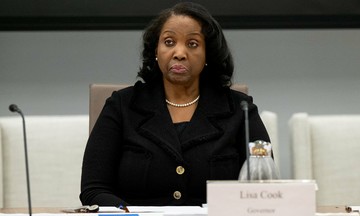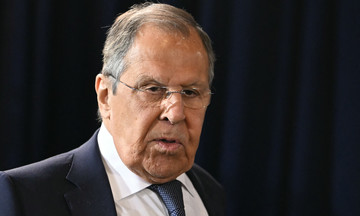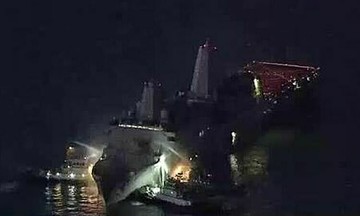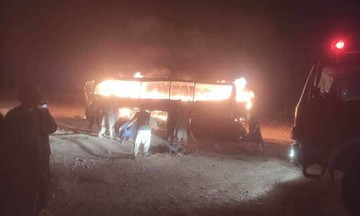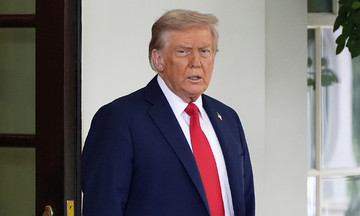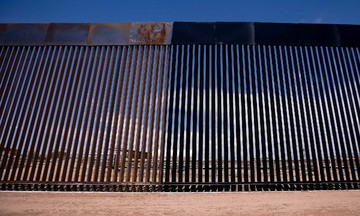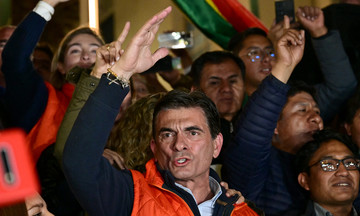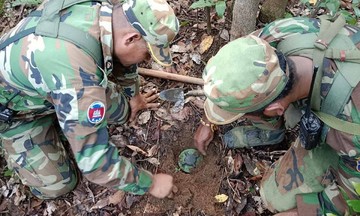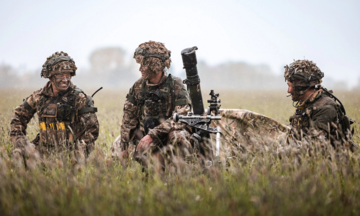Following US President Donald Trump's meetings with Russian President Vladimir Putin last week and Ukrainian President Volodymyr Zelensky and European leaders on 18/8, the main outcome of peace efforts is the prospect of further talks.
Trump's priority is facilitating direct talks between the Russian and Ukrainian leaders to end the conflict. He envisions joining subsequent negotiations to resolve remaining disagreements.
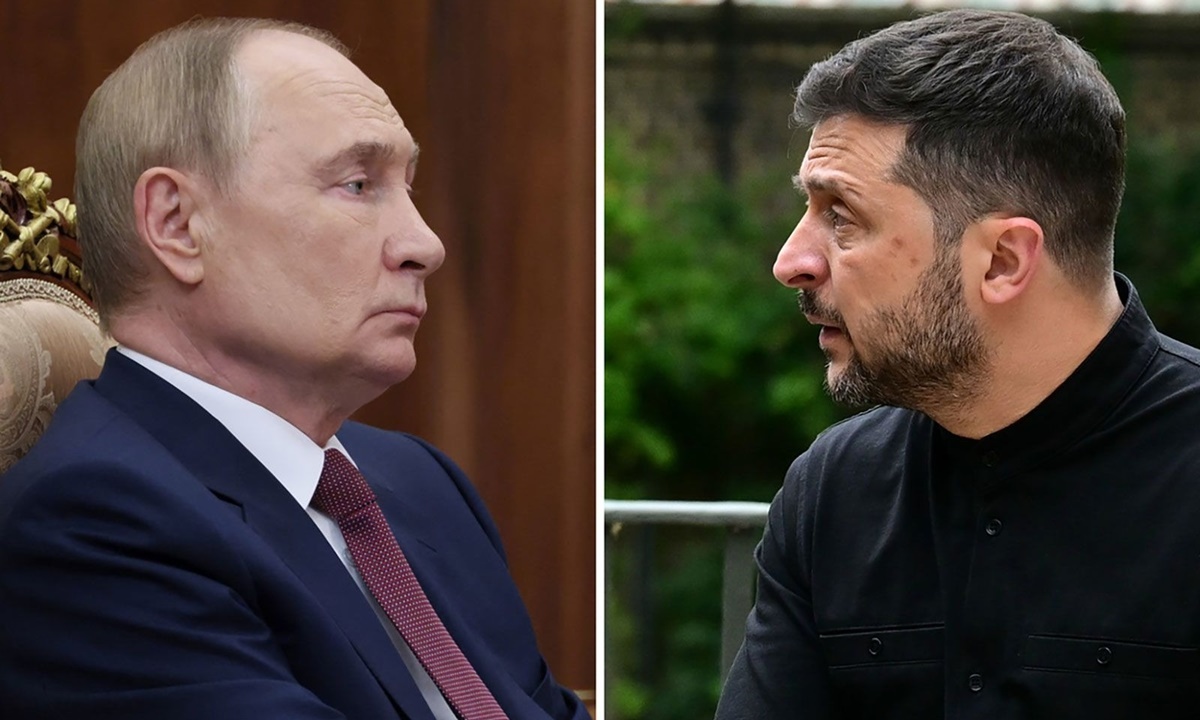 |
Russian President Vladimir Putin (left) and Ukrainian President Volodymyr Zelensky. Photo: CNN |
Russian President Vladimir Putin (left) and Ukrainian President Volodymyr Zelensky. Photo: CNN
"After concluding the meetings, I called President Putin and initiated arrangements for a meeting between him and President Zelensky at a location to be determined," Trump announced on Truth Social on 18/8.
Zelensky, after leaving the Oval Office, summarized his meeting with Trump: "There's still much work to be done," indicating the significant obstacles to peace.
Putin-Zelensky summit unlikely
According to White House Press Secretary Karoline Leavitt, Putin agreed to meet Zelensky in the coming weeks as part of the peace process, and the National Security Council is developing a framework for the summit.
For Putin, such a summit could solidify a peace agreement if Trump pressures Zelensky to accept Russia's territorial demands. However, it carries political risks, as the Kremlin has long declared Zelensky illegitimate due to his expired term, unfit for direct dialogue with Putin.
This explains why Russian Foreign Minister Sergei Lavrov on 19/8 referred to Zelensky as "this individual" or "this man," avoiding his name or title.
Putin's agreement to meet Zelensky "resembles a compromise," commented Russian parliamentarian Konstantin Zatulin.
Following the White House announcement, the Kremlin vaguely stated the need to "explore the possibility of elevating the level of negotiation representatives" without confirming a Putin-Zelensky meeting.
This suggests a meeting is possible but offers no indication it's imminent, contrary to Trump's "end of August" claim.
Analysts believe Putin won't meet Zelensky unless Ukraine accepts Russia's demands for territorial concessions, abandoning NATO aspirations, and demilitarization and denazification.
"I simply don't see the prospect of such a meeting in the near future," said Grigorii Golosov, a political scientist in St. Petersburg, predicting Putin will only meet Zelensky "if it's clear Ukraine will concede defeat."
Putin has stated he'll only meet after a peace treaty is finalized, with no signs of this happening yet.
In an interview on 19/8, Lavrov said the Kremlin doesn't oppose a Putin-Zelensky meeting, but "all high-level contact should be meticulously prepared."
Observers note Putin's delay strategy, hoping for a more favorable battlefield situation. They believe he avoids an immediate ceasefire, leveraging Russia's perceived advantage for future negotiations.
Some Russian analysts believe the Kremlin will propose another low-level meeting in Istanbul to discuss a Putin-Zelensky summit format. "This process may be prolonged by diplomatic disputes, despite US pressure," commented Russian political commentator Andrei Nikulin.
Security guarantees for Ukraine: a sticking point
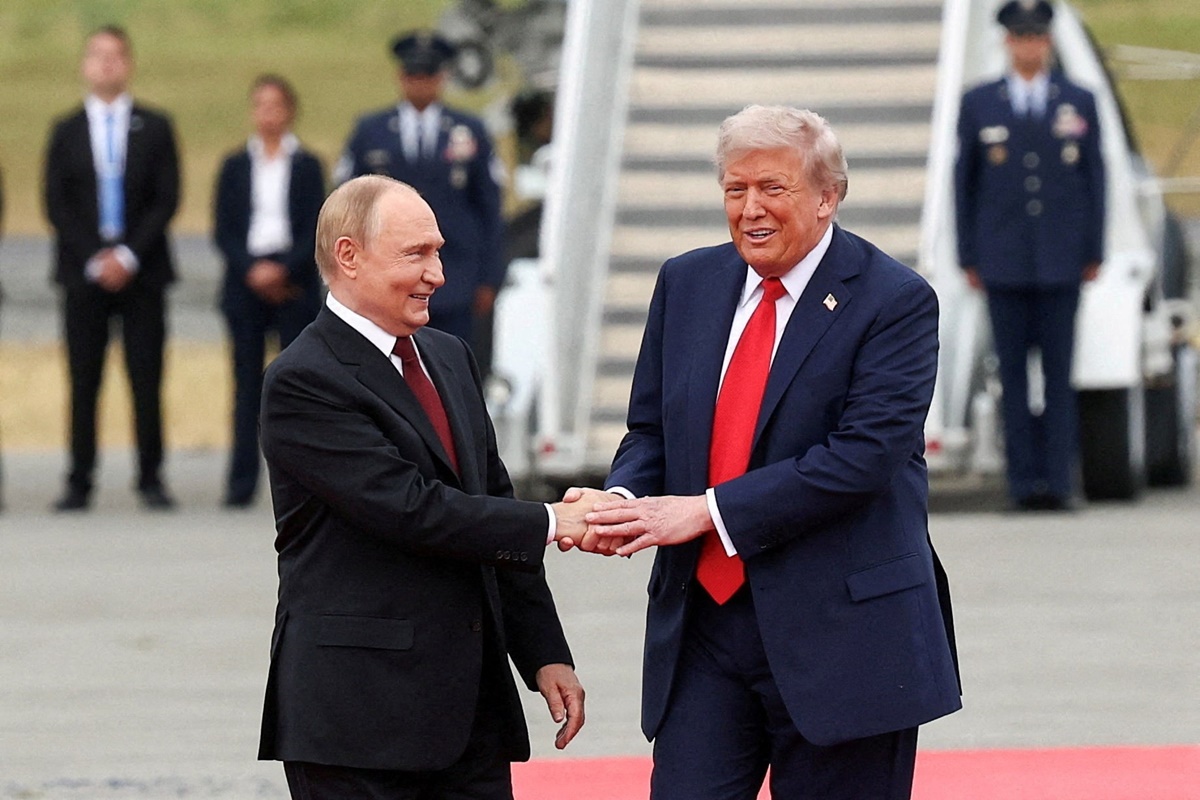 |
Trump welcomes Putin in Alaska on 15/8. Photo: Reuters |
Trump welcomes Putin in Alaska on 15/8. Photo: Reuters
Regarding Ukrainian security, Trump stated US support for European leadership, a focus of the 18/8 White House talks. Ukraine and its European allies want a ceasefire as the first step, but Trump emphasizes negotiating a comprehensive peace plan without one.
The core idea of security guarantees, initially proposed by Britain and France last February, involves several nations, not necessarily European, deploying troops to Ukraine, creating a "steel curtain" against further Russian attacks.
Ukraine wants this force to have weapons, foreign soldiers, and a concrete plan to prevent renewed conflict. However, Russia reiterated on 18/8 its rejection of any such NATO presence in Ukraine.
Trump stated on Fox News on 19/8 he has no intention of deploying US troops to Ukraine, but didn't specify Washington's support for security guarantees.
"We can certainly assist in coordinating and providing other security assurance mechanisms for European allies," said Leavitt. "The president understands security guarantees are crucial for lasting peace and has directed the US national security team to coordinate with European partners and continue discussions with both Ukraine and Russia."
However, specific terms remain undisclosed, leaving uncertainty about the composition and role of any security force for Ukraine.
Territorial concessions: a major hurdle
Experts believe even if the Putin-Zelensky or US-Russia-Ukraine meeting occurs, the biggest obstacle is the differing stances on territorial concessions.
Trump has expressed willingness to accept a "land swap" where Russia relinquishes some controlled Ukrainian territories, while Kyiv withdraws forces from one-third of Donetsk province.
Putin insists on territorial demands for ending the conflict, while Zelensky remains firm against exchanging land for peace.
According to German Chancellor Friedrich Merz, who attended the 18/8 White House meeting, the territorial issue wasn't discussed, essentially postponing it for a Zelensky-Putin meeting. However, this condition could deter Zelensky from participating.
Trump's potential shift in stance
 |
Trump hosts Ukrainian President Zelensky at the White House on 18/8. Photo: Reuters |
Trump hosts Ukrainian President Zelensky at the White House on 18/8. Photo: Reuters
Trump spent much of his term praising Putin, criticizing Zelensky, and briefly suspending arms aid to Ukraine. After failed mediation attempts, he accused Russia of lacking negotiating goodwill and threatened increased sanctions.
However, Putin seemingly persuaded Trump during their recent Alaska meeting, where Trump warmly welcomed him. Trump embraced Putin's proposal to forgo a ceasefire in favor of long-term peace talks and accepted the Kremlin's long-standing condition of Ukraine not joining NATO.
While Trump's support for Ukraine seemed renewed after meeting Zelensky and European leaders, experts suggest Putin could sway him again, sidelining Europe and Ukraine.
Vu Hoang (Politico, AFP, Reuters, AP)



